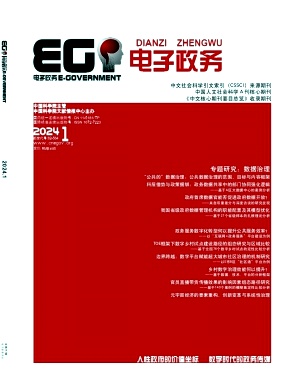A Determination of the Level of Adoption of eGovernment-based Conversational Systems in Nigeria
引用次数: 0
Abstract
Towards reaping the benefits provided by conversational systems, conversational systems in form of chatbots have been deployed to provide different kinds of services in different countries of the world. However, government-based services to the citizens are limited. Consequently, there is a need to know the level of the adoption of this technology in Nigeria so as for the stakeholders to be guided as per the line of action to be taken in reaping the benefit of the technology being usable to bridge the digital divide prevalent in the country. This work therefore investigated the level of adoption of conversational systems - both text-based and voice-based by the various governments in Nigeria. In carrying out the investigations, the websites of the various state governments were visited and searched, for text-based and voice-based conversational systems as well as the availability of any chatting facilities. The results obtained show that even though the vast majority of the state governments have web presence, conversational systems are generally not available. Only three states have chatting facilities; two are text-based and one has a chatting interface that is really not a conversational system. None has voice-based conversational system and two states from the North Central zone have no web presence at all. Consequently, governments need to adopt the usage of conversational systems in order to make services more available in different modes for the benefits of the mases and to reach the unreached. The North central states specifically also need to fully have web presence like the others in the remaining geo-political zones.尼日利亚电子政务会话系统采用水平的确定
为了获得会话系统提供的好处,以聊天机器人形式的会话系统已被部署在世界不同国家提供不同类型的服务。然而,政府为公民提供的服务是有限的。因此,有必要了解尼日利亚采用这项技术的程度,以便根据采取的行动方针指导利益相关者,以获得可用于弥合该国普遍存在的数字鸿沟的技术的好处。因此,这项工作调查了尼日利亚各国政府采用对话系统的程度,包括基于文本和基于语音的对话系统。在进行调查时,访问和搜索了各邦政府的网站,以查找基于文本和语音的对话系统以及任何聊天设施的可用性。所获得的结果表明,尽管绝大多数州政府都有网络存在,但会话系统通常不可用。只有三个州有聊天设施;其中两种是基于文本的,另一种有聊天界面,但不是真正的会话系统。没有一个有基于语音的对话系统,来自中北部地区的两个州根本没有网络。因此,政府需要采用对话系统,以便以不同的模式提供更多的服务,以造福大众,并接触到未接触到的人。中北部国家也需要像其他地缘政治区域的国家一样完全拥有网络。
本文章由计算机程序翻译,如有差异,请以英文原文为准。
求助全文
约1分钟内获得全文
求助全文

 求助内容:
求助内容: 应助结果提醒方式:
应助结果提醒方式:


